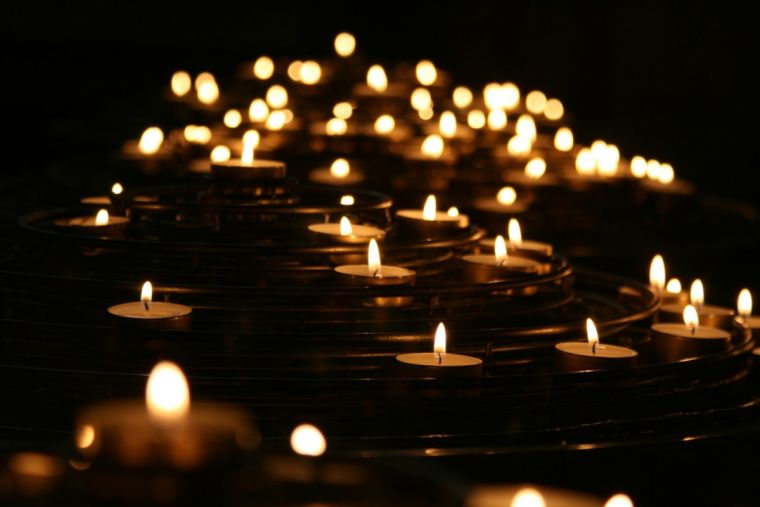Contact, listen and bless - 3 ways to support the bereaved

Christians in bereavement ministry have been sharing how the Church can be there for people experiencing the loss of a loved one.
Rev Canon Dr Sandra Millar, head of Life Events at the Church of England, and Rev Canon Yvonne Richmond Tulloch, CEO of bereavement support website AtaLoss.org, led a seminar at the Christian Resources Exhibition about some of the practical things both churches and individuals can do.
Dr Millar encouraged all Christians to see bereavement ministry as their own and not "a special job" for ministers or trained counsellors.
"It's everyone's ministry and it's rooted in our vocation as followers of Jesus Christ and our sense of call to bring good news to the world," she said.
Both Tulloch and Millar are involved in the Loss and Hope coalition which was created to support the bereaved, and launched in March 2020 just as the pandemic was unfolding.
Giving a window into the "far-reaching" experience of bereavement, Millar shared the results of a survey conducted by the coalition earlier this year which found that 91% of UK adults had experienced the death of someone they knew in the last five years. Sixty-two per cent had lost someone last year and over a quarter (27%) said they had lost more than one person.
For many, their experience of bereavement was made all the more painful by the "missed moments" because of Covid restrictions, with many unable to visit loved ones and say their goodbyes or attend funerals in person.
The social isolation of the pandemic also removed the "consolation just from seeing people" and opportunities to talk with others about their grief, she said.
"These have been difficult times for people [and] all of it adds up to an overall sense of loss," said Millar.
Tulloch said death was often a time of reflection and searching for people: "Bereavement is one of those times in life when people ask those big questions: is there an afterlife? Where is God in this?"
The seminar encouraged people to set aside feelings of awkwardness or fear, and approach people who have suffered a bereavement using the three simple steps of "contact, listen and bless".
This could include simple gestures like calling, visiting and sending cards and flowers to help people through their period of grief.
"Just do what you can. None of this is about setting up some great new thing that feels impossible but simply doing what you can where you are, and the small steps are the things that make a difference," said Millar.
Churches could consider holding special bereavement services, especially at Christmas "when everyone is happy", or creating prayer spaces with a symbolic empty chair, a Garden of Remembrance, or art installation "to enable the community to mark their loss, say their goodbyes and do their remembering," Tulloch added.
It was recommended that churches help create a culture of "it's ok to not be ok", and reach out to people around anniversaries to show that "when everyone else has forgotten, the Church really cares".
And they both suggested that churches do more around suffering on Good Friday.
"Let's make it ok to be suffering," said Tulloch.
"It's part of our Gospel message. Let's bring that back into church and acknowledge that suffering is part of who we are and part of God just as much as His power to heal."
Millar added, "The big thing to remember is that bereavement doesn't have to be problematised and we don't all have to become counsellors.
"We just need to do 'contact, listen and bless'. Be kind, neighbourly and listen well. Anyone can do that."











